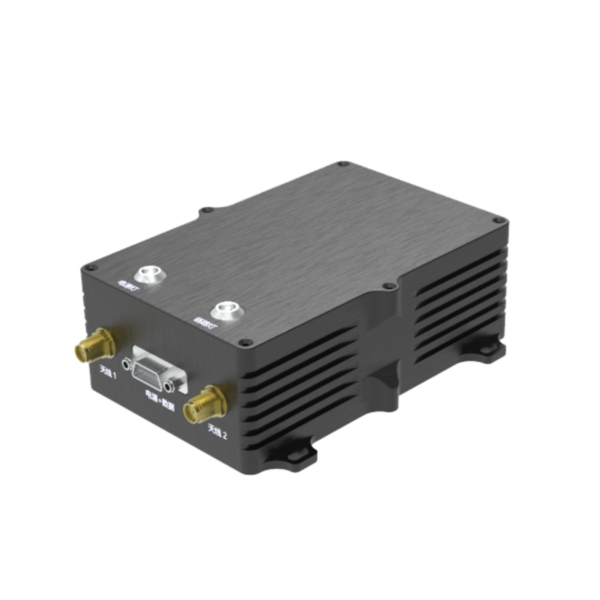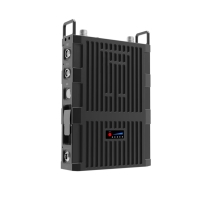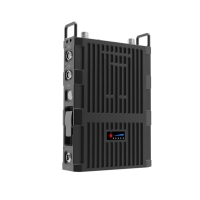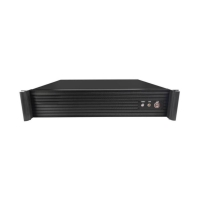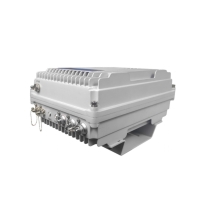On-drone Self-organizing Network Radio MF6100P-4
Category: Self-Organizing Network Image Transmission Base Station
Datasheet contact
The airborne ad hoc network radio is small in size, light in weight, and easy to install. It is particularly suitable for application scenarios with lightweight networking requirements such as drones. With fast network access and automatic multi-hop relay, it can quickly establish an interconnected three-dimensional network with handheld individual systems, vehicle-mounted systems, and surrounding base station networking equipment to achieve efficient collaboration. The system adopts the same frequency networking and multi-hop relay, and supports any network topology, such as point-to-point, point-to-multipoint, chain relay, mesh network, and hybrid network topology. It can provide wireless broadband communication for emergency response, anti-terrorism and riot control, covert reconnaissance, special operations, disaster relief, daily patrols and other "peace and war" tasks in the first time. The transmission distance can reach more than 10km in an open environment on the ground, 300~1000m in a blocked environment (depending on the blocking environment), and more than 30km from the air to the ground.
* Networking without a center: nodes are equal in status and can be used as terminal nodes, relay nodes or central nodes
* Networking with any structure: nodes automatically identify and select the optimal route for bandwidth data
* Security and confidentiality: through layer-by-layer encryption such as working frequency, carrier bandwidth, scrambling code, etc., support DES encryption
* Anti-interference and anti-destruction: using COFDM, MIMO, ARQ and other technologies to improve data bandwidth and anti-interference performance
* Flexible networking of multiple nodes: according to channel quality, rate, error code and other indicators, link routing is automatically calculated and networked flexibly
| Operating frequency | 1300~1500MHz | ||||||
| Carrier bandwidth | 5/10/20MHz, self-adaptable | ||||||
| Transmission system | COFDM | ||||||
| Modulation mode | BPSK/QPSK/16QAM/64QAM (adaptive) | ||||||
| Transmission capacity | Peak rate 52Mbps@20MHz, optional version up to 100Mbps | ||||||
| Transmit power | 4W | ||||||
| Receive sensitivity | -100dBm@5MHz> | ||||||
| Video input | Support IP network video input | ||||||
| Networking | Networking capability | ≥64 nodes | |||||
| Networking hop count | >10 hops | ||||||
| Network topology | No center network, star network, chain network, mesh network, etc. | ||||||
| Encryption method | DES/AES128/AES256 (optional) | ||||||
| Power supply | DC 12V | ||||||
| Power consumption | ≤35W | ||||||
| Device interface | |||||||
| Antenna interface | SMA-K×2 | ||||||
| Ethernet port | J30J connector | ||||||
| TTL serial connector | J30J connector | ||||||
| Power supply | J30J connector | ||||||
| Physical indicators | |||||||
| Device size | ≤113×88×40mm | ||||||
| Device weight | ≤480g | ||||||
| Operating temperature | -30℃~+65℃ | ||||||


